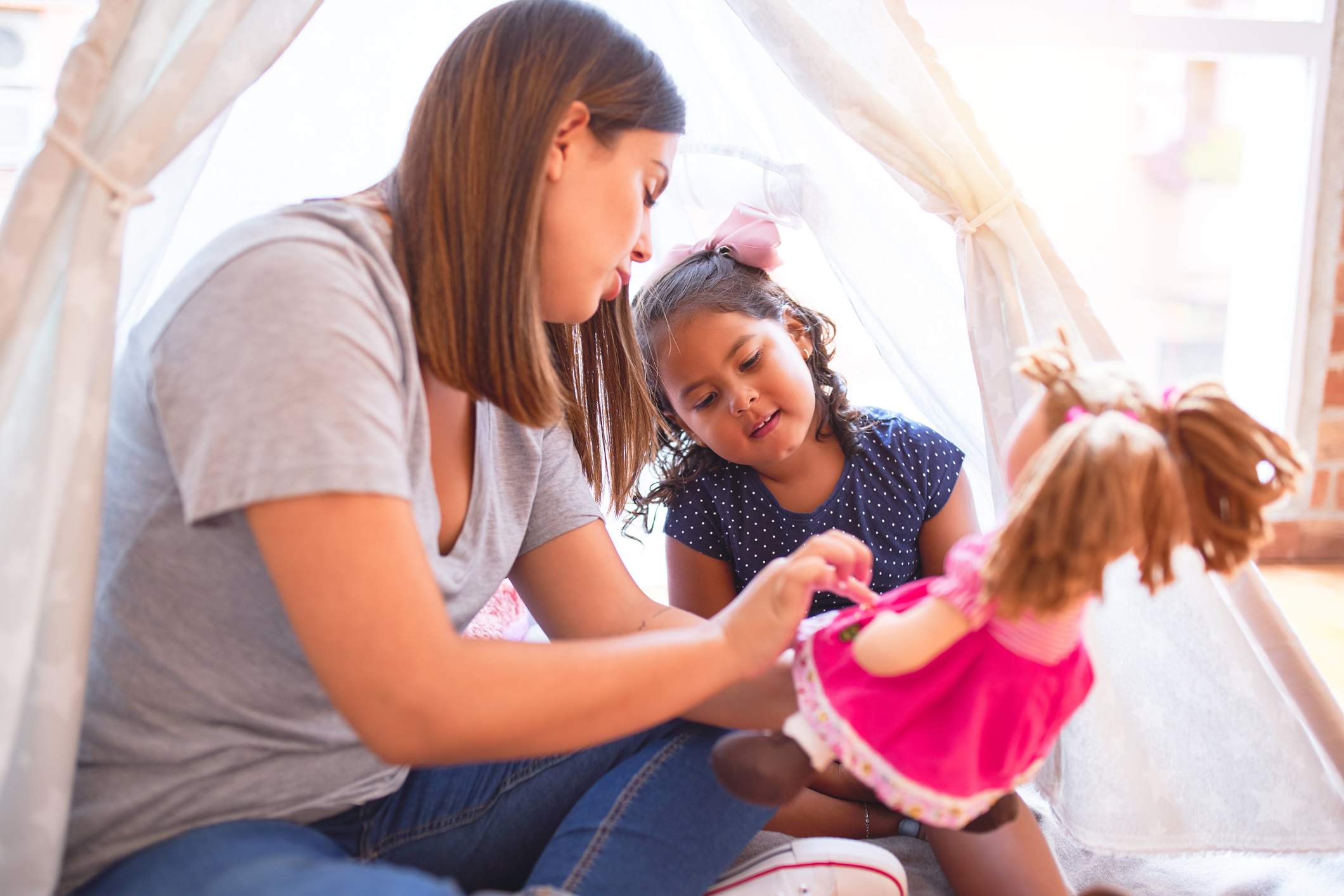
Even in this day and age, many mothers may feel uncomfortable talking about sexual matters with their children, but do not worry, this nervousness is totally natural. It probably doesn't help that many mothers aren't sure about what words to use or how to have a conversation that provides relevant information that is also age-appropriate. Still, sex is a topic that we must address and not avoid, above all, due to the large amount of misinformation that kids can be exposed to on the internet or even things their friends tell them. The last thing you want is for your kids to get incorrect or convoluted information. That's why we want to give you some advice that will help you have those very important conversations with your child.
More on MamásLatinas: How to talk to your kids about safety on the internet
Many mothers wonder at what age they should be bringing up the subject. Believe it or not, many sexual education specialists recommend talking to kids between 2 and 4 years old because that's when their sexual identity is formed. I know, so young, right?! Keep reading as we share tools that will help you talk to your kids about sex in a way that they can understand and that makes you feel comfortable.
Examine your own feelings on the topic of sex.

No matter how old your children are, the first thing you should do is an evaluation of how you feel when thinking about addressing these issues with your children. It's one thing to have some discomfort, which is natural. It's a completely different thing to harbor prejudices or taboos about it. If this is the case for you, it is important that you work on it yourself first because your issues could interfere with the dialogue you have with your children about sex.
It is a topic that should be discussed naturally, mentioning the anatomical name of "penis" or "vulva" without shame. No giving body parts nicknames that give kids the idea that calling their body parts what they are actually called is inappropriate.
Understand that it is natural for them to be curious about their bodies.

Curiosity is natural and they may begin to explore their bodies and ask you direct questions regarding the anatomy of boys' and girls' bodies. This could even include questions about your body and their dad's body. If you avoid the subject or tell him that they are not old enough to ask such questions, you will be encouraging miscommunication and they will think their curiosity is a bad thing and stop asking questions. So, you must be prepared to answer directly and bluntly, keeping their age and level of understanding in mind.
Don't let your nerves make you giggle at their questions.

You may find some of their questions funny because they are funny when you are an adult. Or, you may feel a bit surprised about how direct and uncensored your child can be and start giggling out of nervousness. Try not to laugh, though. Otherwise your little ones might think that their ideas and concerns are not important to you or they might even think that you are making fun of their questions. The best thing you can do is resist the impulse to laugh so they feel like you are taking them and their questions seriously.
Turn everyday moments into teachable moments.

The sex education of your children does not always have to be a "we have to talk" moment. You can take day-to-day moments and use them to help you to talk about sex in a completely fluid and natural way.
The arrival of a new brother or cousin, when they are playing with their dolls, and so many other moments will work. Use the opportunities to mention that the body is private, that it is something personal, and that no one else should touch it without their consent.
Be specific, brief, and honest.

Don't try to turn the conversation into college class or a professional conference. The tone needs to be confident, with a relaxed attitude. Also, keep it brief so that they do not find it boring and tune out what you are saying. If they ask you a question, do not beat around the bush, be direct and try to make the answer concrete. Do not add more information than they are asking you for either. Avoid telling fantasy stories, like the one about the stork, because they take away from the truth.
What to tell them when they are 2 to 3 years old and ask where babies come from.

Talk about the anatomical differences between girls and boys since this is an age where they already have the level of understanding they need to comprehend. The details to be discussed with them are the most basic. Don't delve into everything, for example, they still wouldn't understand the topic of intercourse and can't process it yet. Therefore, when asked about babies, you can answer that babies grow inside mom and that they are formed from the union of two seeds in a special place that is only for babies and is called the uterus.
When they are between 4 and 5 years old, they may ask how the baby gets inside the mother.

Rely on a book that is age-appropriate and has drawings to help them understand the process. If you explain to them that a small sperm from the body of a man meets a small egg from the woman that is in the lower part of her belly and show them an image from an educational book, they will be satisfied with the information. Also, it is important to let them know that when the baby grows and no longer fits in that special place for babies, that is when they are born.
The curiosity of children 5 to 7 years old requires clearer and more precise information.

It's possible that at this age, their questions are much more specific and direct, such as: How does a couple have sex? One answer you could give them is to say that when a man and a woman are in love, they show physical affection to each that begins with lots of hugging and kissing, then the man's penis goes into the woman's vagina and that's called sexual relations.
Talk about respect and love with teenagers.

It is important to instill in teens that sex is something that occurs between two people who care about and respect each other and who seek an encounter where there is pleasure and affection. This sows the idea of respect in them and emphasizes the importance of it being a consensual act.
Discuss all the possible ways in which sex is distorted, such as pornography, discrimination against women, or issues as sensitive as kidnapping for slavery. It is a time where questions may arise regarding homosexuality, masturbation, and unwanted pregnancies.
Talk to them about body self-exploration and help them set appropriate sexual boundaries.

Many specialists warn against body self-exploration becoming a way to release anxiety. It is natural to explore one's body to discover sensations and satisfy curiosity. But it can become addictive if limits are not established. Therefore, reiterate that the body is private and special and that it is not a tool to play or release anxiety. This can help them develop an understanding of what healthy contact is when they are alone or with someone else as they are discovering their sexuality during adolescence.


